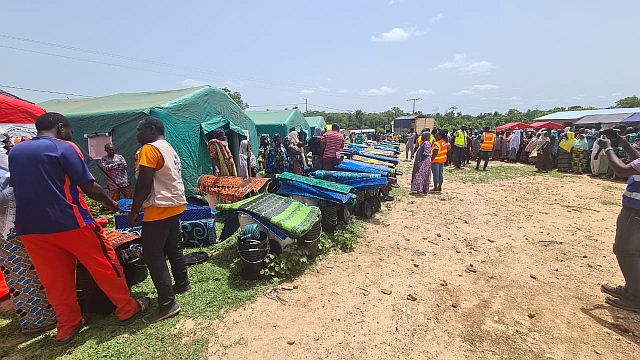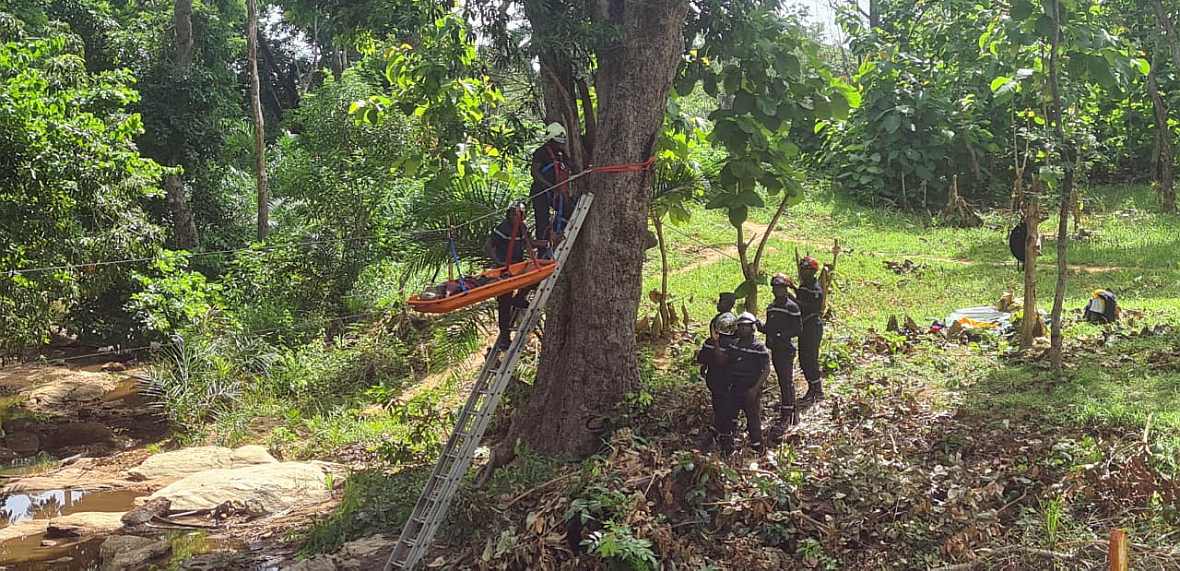In Togo, the exercise known as ‘bizoubiyeli feriti 2024’, meaning ‘flood prevention and warning’ in the local language, took place on 3 June 2024 in the Prefecture of Assoli at Daoudè, in the commune of Assoli 1 in the Kara region. The exercise, as it was called by the local population, was validated by all those involved in the national and local disaster risk reduction platform, coordinated by Togo's National Civil Protection Agency (ANPC).
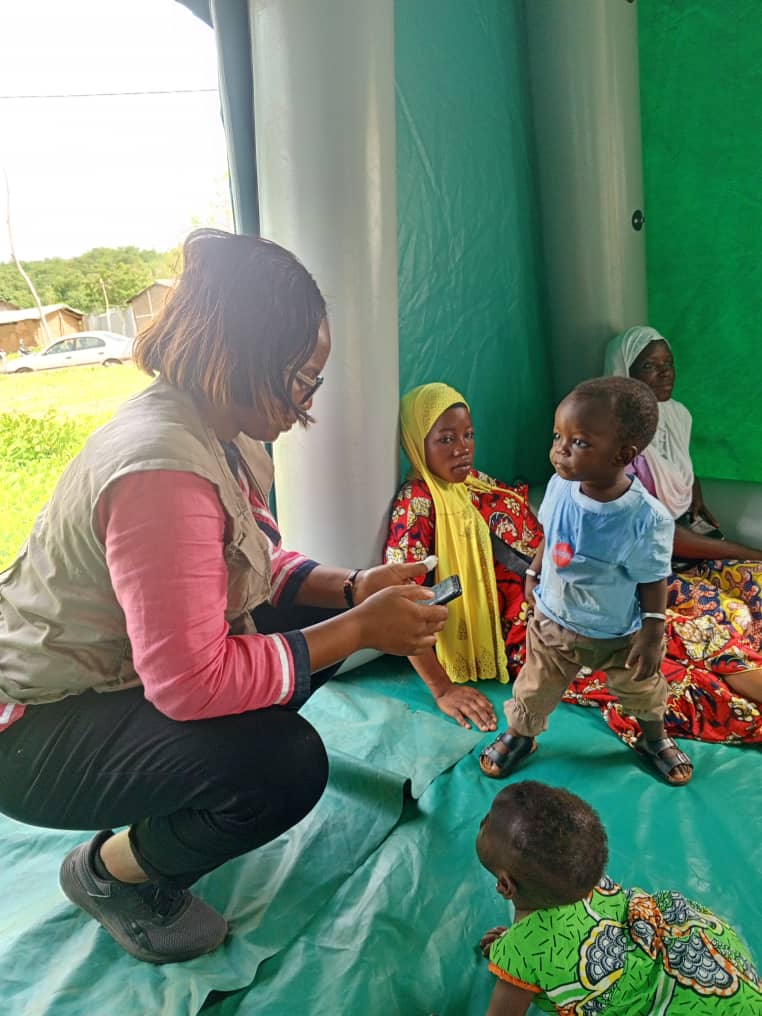 The aim of the exercise was to test the prefectoral plan for organising the civil security response in the event of a disaster (ORSEC Plan), as well as the VOLTALARM (Mydewetra) electronic warning system set up as part of the ‘Integrating flood and drought management and early warning for climate change adaptation in the Volta Basin’ or VFDM project.
The aim of the exercise was to test the prefectoral plan for organising the civil security response in the event of a disaster (ORSEC Plan), as well as the VOLTALARM (Mydewetra) electronic warning system set up as part of the ‘Integrating flood and drought management and early warning for climate change adaptation in the Volta Basin’ or VFDM project.
The exercise took place in six acts over four days, starting on 31 May 2024, and involved all the technical, political and public players (EWS, Security, Communication, Health, Operations, Relief, Assistance, WASH,) involved in the warning chain right through to the care of disaster victims.
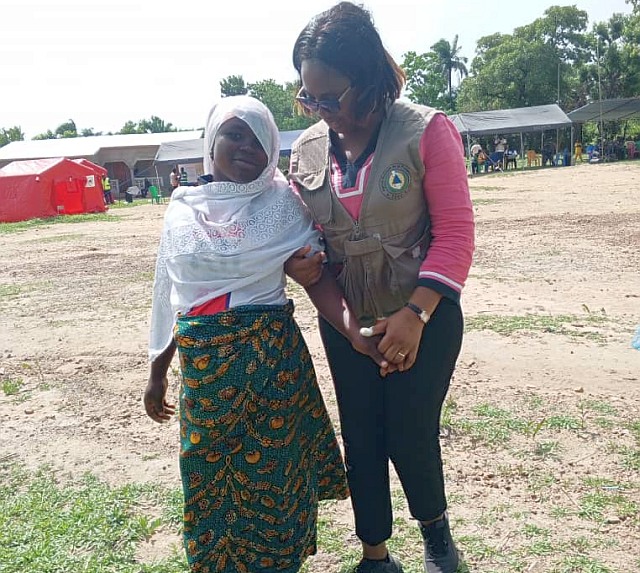 The simulation was based on the three-day weather forecast issued by Togo's National Meteorological Agency (ANAMET), which predicted heavy rain from 1 to 3 June 2024, confirmed by the hydro-meteorological forecast produced by the Mydewetra VOLTALARM model. The other players will intervene at various levels following the findings on the ground and the warning issued by the local Prefect. An emergency coordination meeting of the local Disaster Risk Reduction (DRR) platform will be held to activate emergency assistance, evacuate at-risk areas, provide medical care and care for those affected.
The simulation was based on the three-day weather forecast issued by Togo's National Meteorological Agency (ANAMET), which predicted heavy rain from 1 to 3 June 2024, confirmed by the hydro-meteorological forecast produced by the Mydewetra VOLTALARM model. The other players will intervene at various levels following the findings on the ground and the warning issued by the local Prefect. An emergency coordination meeting of the local Disaster Risk Reduction (DRR) platform will be held to activate emergency assistance, evacuate at-risk areas, provide medical care and care for those affected.
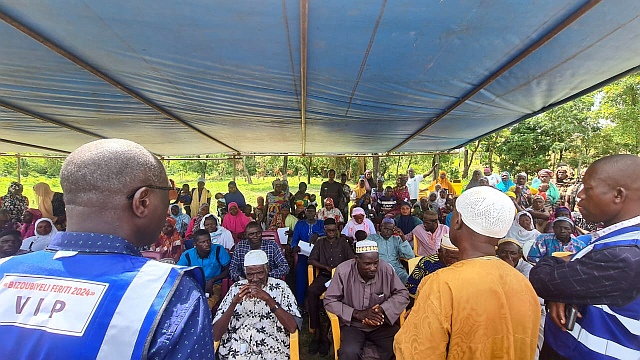 The simulation exercise, which took place in the village of Daoudè, involved some 350 people at various levels of responsibility. The exercise revealed that the various players had a thorough understanding of their roles and responsibilities. The prefect of Assoli was very optimistic about the exercise, saying that ‘it comes at just the right time as the rainy season gets underway’. ‘The events that took place in Lomé with the heavy rainfall yesterday [2 June 2024] confirm the need for this simulation exercise to help test our warning and rescue system’, said the Deputy Director General of the ANPC, Mr SALIM.
The simulation exercise, which took place in the village of Daoudè, involved some 350 people at various levels of responsibility. The exercise revealed that the various players had a thorough understanding of their roles and responsibilities. The prefect of Assoli was very optimistic about the exercise, saying that ‘it comes at just the right time as the rainy season gets underway’. ‘The events that took place in Lomé with the heavy rainfall yesterday [2 June 2024] confirm the need for this simulation exercise to help test our warning and rescue system’, said the Deputy Director General of the ANPC, Mr SALIM.
"We would like to thank all those involved in making this simulation exercise a success. We hope that this exercise will enable good prevention and anticipation of possible flooding and a coordinated response should this hazard occur. Our thanks to the government, partners and local authorities who made this exercise possible. Let's work together to protect our people from the risk of disasters," added Commissaire Principal SIMBOOU, ANPC Head of Operations.
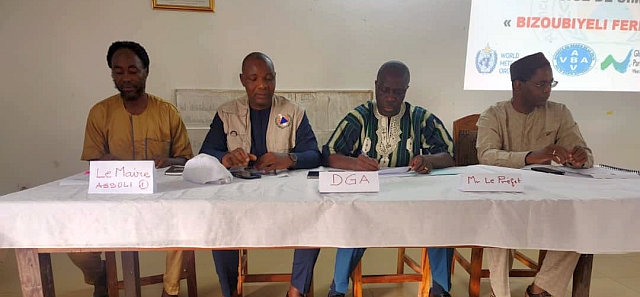 The representative of the VFDM project's implementing partners, Mr Sidi COULIBALY, agreed, noting "the importance of this exercise, which has enabled us to identify the weaknesses to be corrected in the existing system, as well as the strengths to be consolidated". He pointed out that since the Volta basin is vulnerable to flooding every winter, this exercise has been extended to all six countries sharing the basin, namely Benin, Burkina Faso, Côte d'Ivoire, Ghana, Mali and Togo. He thanked all the stakeholders involved, as well as the implementing partners of the VFDM project (VBA, WMO and GWP-WA) financed by the Adaptation Fund since 2019.
The representative of the VFDM project's implementing partners, Mr Sidi COULIBALY, agreed, noting "the importance of this exercise, which has enabled us to identify the weaknesses to be corrected in the existing system, as well as the strengths to be consolidated". He pointed out that since the Volta basin is vulnerable to flooding every winter, this exercise has been extended to all six countries sharing the basin, namely Benin, Burkina Faso, Côte d'Ivoire, Ghana, Mali and Togo. He thanked all the stakeholders involved, as well as the implementing partners of the VFDM project (VBA, WMO and GWP-WA) financed by the Adaptation Fund since 2019.
The event ended with a large donation of buckets, mats, kettles, food and life jackets being handed over to the sub-prefecture, where they were also handed over to the mayor.
